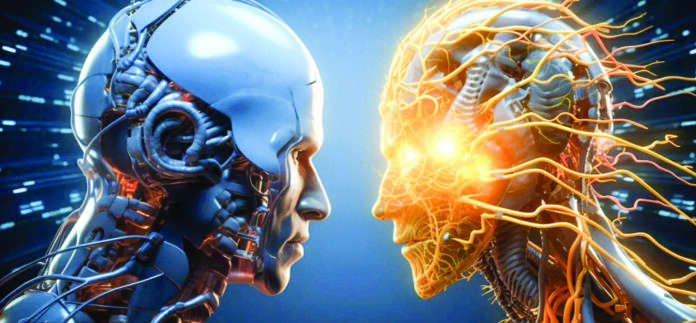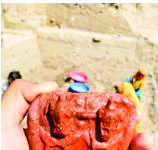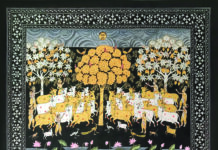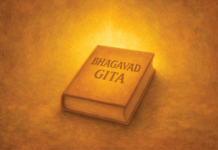Indian culture is fundamentally rooted in the pursuit of knowledge, and its growth has always been fuelled by curiosity. This very curiosity is the source of the Indian intellectual tradition, manifesting as a stream of inquiry. The answers to these questions, in turn, nourish and enrich this tradition. The enduring practice of dialogue between teacher and student, a tradition of questioning and answering, have been the driving force behind our intellectual advancement, as vividly exemplified in the Vedic literature, especially the Upanishads.
In Vedic corpus, intelligence has been revered as Medha Shakti, Buddhi or anything which is divine. There are different versions of Medha Sukta found in Vedic literature, notably, 6 hymns in Taittiriyaranyaka of the Krishna Yajurveda and 9 hymns appear as a Khilasukta in the RgVeda. It holds a significant place within the Indian knowledge Tradition, reflecting core values and beliefs about the pursuit of wisdom, as also demonstrating a commitment to an eternal inclination towards the yearning for knowledge.
The word intelligence originally comes from the Latin word ‘intelligere’ or ‘intelligentia’ meaning ‘to understand’. The term intelligence can be defined as the ability to understand, learn and think. However, in India, the concept of Medha goes beyond mere intellectual capacity. In encompasses understanding, retention, conscience and the ability to implement knowledge effectively.
There are various techniques, aimed at enhancing memory, influencing our cognitive abilities – prakitii and vkriti patha of Vedic mantras, katapayadi and bhutasamkhya, systems of enumeration etc. Practicing such mental and cognitive activities, potentially enhance focus, strengthens memory and influences mental clarity and alacrity.
Artificial intelligence (AI) is one of the most notable contributions of the modern science. However, this technology rooted in and sprouted out of the west has individualistic approach and gratification. The tendency to divide a whole in many, in order to complete small tasks, shows indifference towards the holycity of the universe. Whereas, India has nature-centric civilization since the beginning of time. It has contributed numerous ideas which have shaped the civilizations in the myriad forms and through different expressions of these esoteric as well as exoteric concepts.
Since the AI is the most influential technology in our present day endeavours it is unavoidable to talk about challenges of the use and misuses of the technology. AI is a tool that can be used for good or ill, depending on the moral compass of its users. It is important that AI should be guided by a human-centric moral framework to align it with human values and ethics.
It also raises questions about the potential impact of AI on human creativity. If AI were to readily fulfil all our imaginations and makes the process of turning ideas in to reality too easy, it might discourage humans from the act of imagining, dreaming and innovating. For example, the human desires to experience the world beyond any imposed limitations.
The concept of society is at the very foundation of vitality in human life. With the unquestionably strong impact of AI, the obvious question arises that whether the fabric of society will be able to sustain itself in its diversity, complexity and multifariousness.
There is also need to address various questions and considerations about AI development, such as determining the limits of AI learning, criteria and boundaries of AI development, importance of accountability in AI field, strong policies, guidelines and framework for the use of AI, thereby creating a conducive environment for an ethical and judicious application of AI, especially in a country like India.
We must use AI as a tool but should not become a tool for the AI. AI as a tool should serve moral human purposes, should not only be responsive but also responsible as well.
AI recognises patterns in massive production in order to create any art from its vast databases. The AI goes through a numerous reference and creates something new by combining all the patterns. However, it lacks originality and the imperfect aesthetics of man-made art.
AI can generate ideas and make art in few moments outpacing human efficiency. Even after being able to maintain a common theme across a large project, it fails to dream up and create purposeful art-form its own imaginations like the human mind.
We need to understand that each one of us is a special and has tremendous inbuilt creativity. We need to keep our creative intellect alive and believe more on our artistic intelligence rather than Artificial Intelligence. Our artistic intelligence (AI) is what that makes us special and separate. For us, any creation without ‘Bhaav’ and ‘chitt’ is mechanical without originality. Time to think about proportion and balance between the two AIs.
* Sachchidanand Joshi is the Member Secretary of IGNCA.








